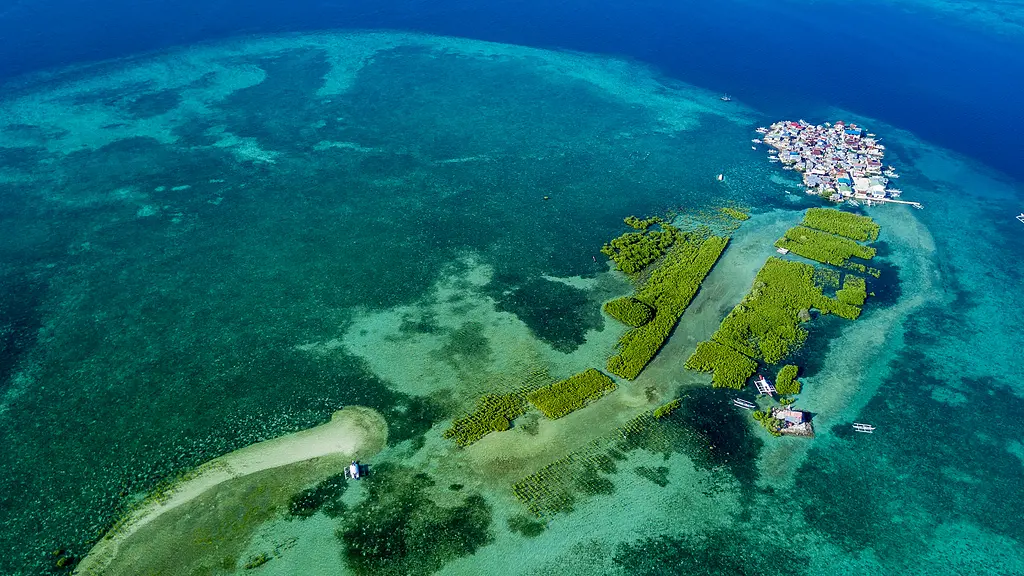The climate crisis has led to dire warnings about the future of life on planet earth. Warming temperatures and changing weather patterns threaten the global biodiversity that humans depend on for important ecosystem services – such as food, clean water, breathable air, and raw materials for construction and industry.
As noted in the recent summary of the IPCC’s Sixth Assessment Report, the choices we make now and in the near future will determine the extent to which current and future generations – and the millions of species of flora and fauna we coexist with – will live in a hotter and more challenging world.
At RTI, we recognize the climate crisis is a huge challenge. It also offers an opportunity to build a more prosperous, healthier future together. Mitigating and adapting to the impacts of climate change will require us to upend the narrative that we, as globally minded individuals, must choose between economic growth and combatting climate change.
Everyone has a role to play. RTI is working with governments, the private sector, and vulnerable communities to launch innovative economic incentives, galvanize new collaborations, and increase appreciation for nature-based solutions to climate change.
How nature-based climate solutions can help
Nature-based solutions are an area of growing interest to partners across sectors because they deliver benefits for both economic and environmental sustainability. Benefits range from capturing carbon while helping communities make their livelihoods more sustainable to “greening” supply chains in ways that benefit vulnerable farmers.
The urgency of climate change is incentivizing greater investment in these types of solutions, and public-private collaborations can provide examples of what’s possible for governments, businesses, communities, and development organizations.
Below are three ways RTI is leveraging nature-based solutions through our implementation of conservation programs to deliver economic and environmental benefits that fight climate change.
1 - Biodiversity conservation and protecting livelihoods in the Philippines
In the Philippines, nature-based solutions include restoring damaged ecosystems and making fishing more sustainable. The USAID Sustainable Interventions for Biodiversity, Oceans, and Landscapes (SIBOL) activity is helping islands in the country replant mangrove forests along coastlines, which protect communities, tourism, and biodiversity when typhoons hit. Mangroves are also heavy hitters when it comes to storing carbon, sequestering up to four times more than rainforests per hectare. Through local partnerships, communities are also leveraging this restored biodiversity to create new ecotourism products for income.
Mangroves, along with coral reefs and seagrass beds – which also serve as massive carbon sinks – are at risk in the Philippines because of local fishing practices and coastal development. These ecosystems act as fish “nurseries,” and keeping them healthy will lead to increased availability of fish in the future. The SIBOL activity is developing and sharing messages on the importance of not overfishing, strengthening local fisheries management and protection of important ecosystems, introducing additional income opportunities, and generally promoting more sustainable livelihoods. As a result, fishers are boosting their short-term income and preserving the longevity of their primary livelihood (fishing). The government has a role to play as well, enforcing fishing rules that protect and even reverse damage to these reefs.
2 - Protecting wildlife, biodiversity, and farming in Tanzania
In Tanzania, wildlife conservation delivers economic benefits in the form of tourism and mitigates climate change as the protected areas where animals live and travel capture carbon. Through the USAID Tuhifadhi Maliasili (“Preserve Natural Resources”) activity, our work with local ecotourism company Chem Chem Safari and their associated nonprofit has created local jobs while ensuring these areas remain protected – from poaching as well as encroachment from agriculture.
For those who rely on agriculture for a living, we’ve worked with them to develop and integrate activities that improve livelihoods without having to expand onto protected land. Given the proximity of some farms to protected areas, human-wildlife conflict is also a significant challenge. One ingenious nature-based solution takes advantage of elephants’ natural aversion to bees: We’ve helped farming families line their fields with beehives to keep elephants out and create a new income stream from the honey. We’re now exploring connecting these farmers with private cooperative groups that source this honey and provide fair prices. Bees also pollinate the area and benefit biodiversity on and off these farms. This activity has created an economic incentive around a nature-based solution that also reduces human-wildlife conflict.
3 - Encouraging green growth that benefits development
Private sector engagement and financial inclusion are critical for implementing and sustaining nature-based solutions. Starting a new business venture can be risky, and for vulnerable communities, there is often little financing available to do so.
To help communities invest in nature-based solutions, we’ve introduced village savings and loan associations that provide local financing for more conservation-friendly income opportunities like establishing mangrove nurseries in the Philippines and beekeeping and bakeries in Tanzania. In Tanzania, associations members are also using digital banking tools thanks to private sector support, ultimately increasing their ability to access formal finance in the future.
Under Tuhifadhi Maliasili, we’ve also engaged the private sector on voluntary industry standards to green supply chains. For example, local sugar companies in Tanzania created agreements with the growers they source from to restrict farming in protected areas. This type of collaborative and participatory land-use planning with companies, growers, local governments, and conservation organizations is important to ensure biodiversity can thrive alongside sustainable livelihoods.
Together we can fight the climate crisis
In the face of what can feel like the overwhelming odds of climate change, nature-based solutions provide valuable opportunities for preserving economic growth while advancing mitigation. The private sector, governments, nonprofits, and communities all play a role and stand to benefit. Investing in nature-based solutions is good for business, good for development, and good for our shared future.
Learn more about our work to protect biodiversity and natural resources.

